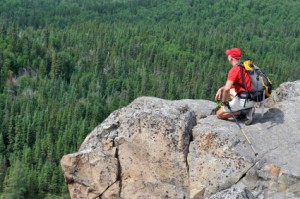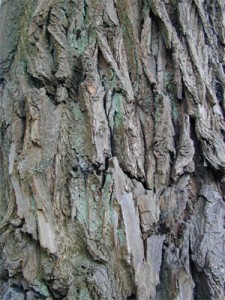 The wonderful thing about nature is that it provides, in abundance, just about anything we might need to survive. Life in the wilderness is sustainable because, what man or beast uses to survive is replaced by nature’s power of renewal.
The wonderful thing about nature is that it provides, in abundance, just about anything we might need to survive. Life in the wilderness is sustainable because, what man or beast uses to survive is replaced by nature’s power of renewal.
The wilderness is a cornucopia of plant and animal life that can provide all of the nutritional sustenance and medicinal remedies a person could need in perpetuity. However, if you’re uniformed as to how to reap the bounty of nature, you may endure a hardship that won’t end well.
With everything you need within view, there is no reason for anyone to suffer from starvation, thirst or sickness. You just need to know what it is you’re looking for.
In Survival, Knowledge is Power
There are countless stories of how the explorers, upon their landing on the shores of the New World, suffered mass starvation and disease, decimating their populations. Their lack of knowledge of the nutritional and medicinal properties contained in the surrounding wilderness led to their demise.
Over time, they were educated by the local natives as to the remedies and sustenance that lay right at their feet. It was with that new-found knowledge that future expeditions would survive and flourish in the New World.
For the unskilled survivalist (just as it was for the New World explorers) it is ignorance that poses the greatest threat to surviving an extended journey into the wilderness. It is also difficult for most people to overcome their preconceived notions of what is edible and what is considered nourishment.
A plate full of insects, bark and plant roots doesn’t look appetizing to anyone. However, with the knowledge that it can provide the nourishment to live another day, an informed person would not hesitate to go for seconds.
In fact, if you were dropped, naked, deep in the wilderness, everything you need to feed, clothe and shelter yourself would be right at hand. The protection you need to fight off hungry critters and counter sickness and injury is all around you. If you arrived with the right skills and knowledge, the wilderness can be your protector.
There are many fascinating stories heard from wilderness survivors who saved life and limb using the medicine provided by Mother Nature. It was their understanding of the medicinal properties of natural remedies, and how they related to the more familiar pharmaceutical concoctions, that enabled them to emerge alive and in one piece.
Injury in the wilderness
Injuries, such as a sprained ankle, suffered in our everyday, pampered lives, are handled routinely and without a great deal of concern over its impact on our daily existence. Ice the injury. Wrap the ankle, and swallow a pill. Move on.
The same injury in the wilderness could be life-threatening if you are unprepared and lack the knowledge and skills to properly treat it. You ability to move and forage is the key to survival and, should an injury prevent you from doing that, you can become vulnerable to hunger and other threats.
Don’t leave home without your Survival Kit
The lesson in this is to make sure that you are prepared. Knowledge and skills can get you so far in the wilderness. Unless, as in our previous illustration, you were suddenly dropped into the wilderness, any venture from civilization should include some essential survival gear.
A simple day hike can turn into a survival situation if you sustain a serious injury or a loss of orientation. Your selection of survival essentials could make the difference in how dangerous the situation becomes.
Consider the ankle sprain again. If it occurred while you were carrying your survival kit, you would have the essential supplies to get you comfortable and mobile quickly.
The wilderness is your medicine cabinet

Tree bark from a white willow contains compounds from which aspirin was derived.
A skilled and knowledgeable survivalist should be able to carry on even without the right survival gear. Gear can be lost or supplies depleted, so it is vital that you are prepared to exert your skills. You may find yourself in a situation where one, critical skill or piece of knowledge could mean the difference between life and death.
In the example of the sprained ankle again, let’s draw upon the knowledge of the medicinal properties of certain tree barks and their natural compounds that mimic the compound found in aspirin. In fact, it is from the compound found in tree bark that scientists eventually created the most common pain killer known to man – aspirin.
Thanks to Native Americans, explorers and pilgrims benefited greatly from the pain-reducing properties of salicin, found in tree bark. It helped them overcome the pain and suffering of severe injuries and sickness.
The ability to find and harvest the tree bark that produces salicin is a must for your survival-knowledge base. Salicin is found primarily in the inner bark of trees from the willow family. In North America, it is plentiful among the American Aspen, also known as poplars; the Bigtooth Aspen; and several of the willow species, including white, black, crack and weeping.
How to concoct bark aspirin
When you come across one of these trees, you will want to examine the bark to determine the method for harvesting the salicin. Located in the inner bark, which is the living part of the tree, the salicin is accessible by peeling away the outer bark. The green inner bark is attached to the actual wood of the tree.
Depending on the time of year, the bark should easily peel from the tree. During the late fall or winter, the bark doesn’t peel as easily, so you would need to use a sharp knife to scrape it from the tree. You should limit your harvest to the amount that you will actually consume and focus on the smaller branches.
To prepare your bark aspirin concoction, you would take a palm full of cut, minced pieces of inner bark and simmer it, like a tea, in a cup of water. After ten minutes, just strain it and drink it. Interestingly, its taste, especially when harvested from a poplar tree, is very similar to that of aspirin – slightly bitter. If you’re in a rush, the moist, green inner bark can simply be chewed.
The wilderness is your medicine cabinet
The wilderness is abundant with natural remedies. Your enjoyment, and ultimately, your survival, in the wilderness will be enhanced greatly by increasing your knowledge and skills in the medicinal application of nature’s bounty.
Other articles in this issue:
If you liked this article you may be interested in this product from our sponsor.

 Off The Grid News Better Ideas For Off The Grid Living
Off The Grid News Better Ideas For Off The Grid Living



